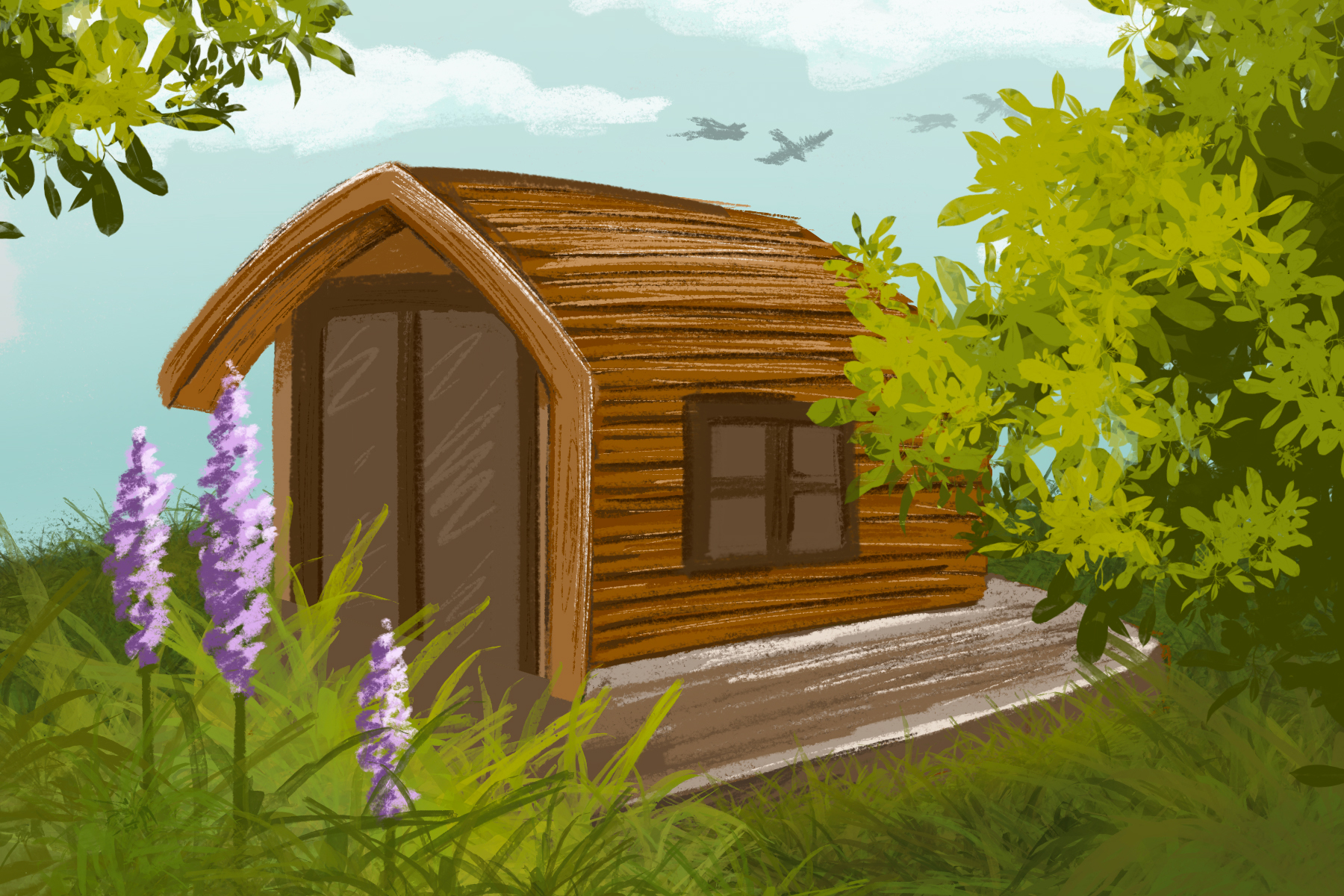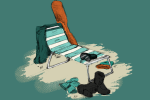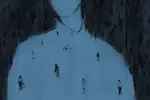As coronavirus cases have gone up across the United States, the number of countries that will no longer accept American passports has also increased. So while the duress of the pandemic has made vacations even more desirable, it has also severely limited the vacationing options available. The virus also complicates travel itself, as many people are reluctant to board enclosed spaces such as planes and trains. Therefore, Americans have to get creative when planning getaways. One idea gaining popularity is tiny house camping: With more amenities than camping but all of the privacy and seclusion, it is the perfect pandemic vacation.
Recently, my family went on a tiny house camping trip, directly prompted by the pandemic. We usually take a trip every summer, whether to the Florida beaches or Adirondack lakes; we love traveling and having fun in the sun. But the pathogens currently lurking in every major American town dissuaded us from going too far. Our compromise was driving a few hours upstate to spend four days “glamping” on a farm near the Catskills. We slept on beds in 70-square-foot wagons that were converted into miniature homes, cooked our meals outside on a grill and went hiking during the day. It was a splendid experience, and it gave us exactly the time off we needed.
My family is not the only bunch of Americans looking for a bit of rest and relaxation. A recent Washington Post article raved about the advantages of tiny house camping amid a pandemic. Travel blogs abound with listicles highlighting cute and quirky tiny houses all over the country. Camper van sales have skyrocketed nationwide, along with headlines about the drastically increased number of visitors at major campsites around the country. All of this data reveals just how important travel and vacationing are to Americans who suddenly find themselves homebound. People will stop at nothing to get their fun in the outdoors, and many are stumbling upon camping as a fun and safe option.
Although regular camping is a popular American pastime, it is not ideal for everyone. Some struggle with lighting a fire and cooking over an open flame; others dislike the exposure to the elements and still, others feel uncomfortable sleeping in a tent. Tiny house camping is the perfect compromise for those who may balk at the notion of classic camping. Indoor beds provide a safe haven away from bugs, dirt or rain, while an outdoor heated shower offers the feeling of being immersed in nature while still being able to do a skincare routine. The experience of living in a tiny home is idyllic and exciting; it feels like an adventure in and of itself.
Not only is tiny house camping fun, but it is also extremely safe in the context of COVID-19. The best part was that we saw nearly no one during the entirety of the trip, save a few cashiers.
Our campsite was at the back of a farm, down a long dirt road and surrounded by trees. Cars and other traffic were barely audible, and from our fire pit, it was impossible to see anything but nature. We didn’t have to disinfect much, because the hosts cleaned the tiny houses prior to our arrival and the remainder of the campsite gets a thorough washing every time it rains. Additionally, the nature of camping meant that all of our activities took place in the outdoors. Hiking, swimming in reservoirs, birdwatching, kayaking and roasting marshmallows over the bonfire can all be done in fresh air and within the safety of the familial pod. Overall, our vacation was quarantine-friendly.
If you’re interested in tiny house camping, here are a few tips from a veteran tiny house camper. Any outdoorsy adventure requires preparation, so one downside of tiny house camping is that it often requires extensive planning and packing. Despite boasting indoor sleeping arrangements, the majority of tiny house camping sites necessitate outdoor cooking. You can adapt most meals to a grill or fire pit, but also consider your ingredients. It is a near-guarantee that there will be no fridge, so everything you bring or buy must be non-perishable. Alternatively, it is possible to bring a cooler filled with plenty of ice, although this method will still only keep items cold for a few days maximum.
After recharging among the trees and tall grass and then returning home to bustling Brooklyn, my conclusion about tiny house camping is that everyone should try it. Even if you aren’t feeling too affected by the stress of the last few months, chances are that your body would appreciate a break. A couple of days of breathing fresh air and eating plenty of s’mores will do anybody good. Furthermore, even those who are the most anxious about the coronavirus have little to worry about with tiny house camping. It’s definitely no beach in the Bahamas, but a tiny house in the woods can be fun for all.

















